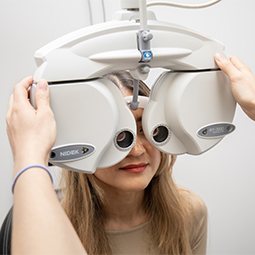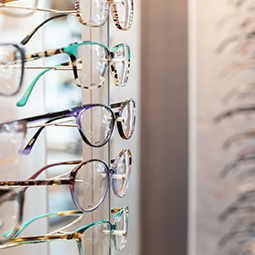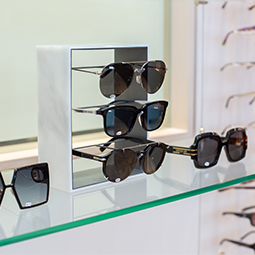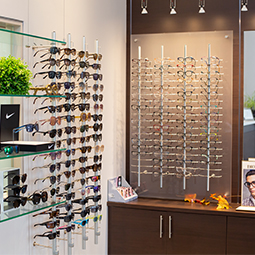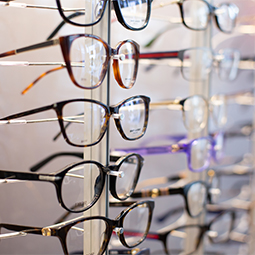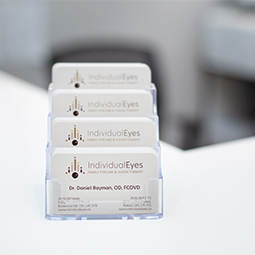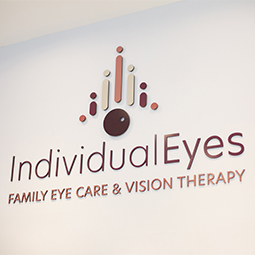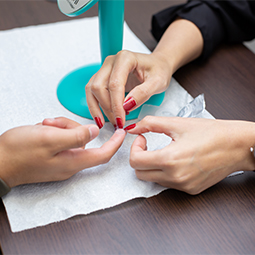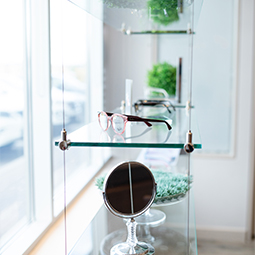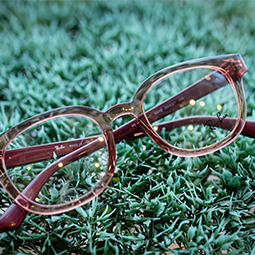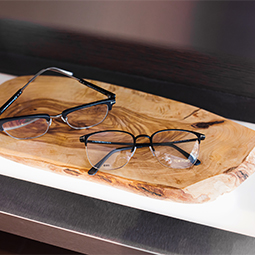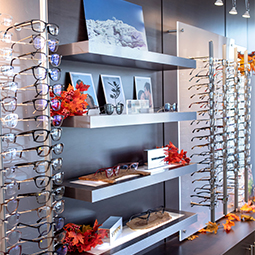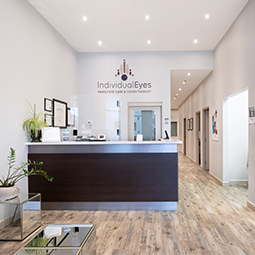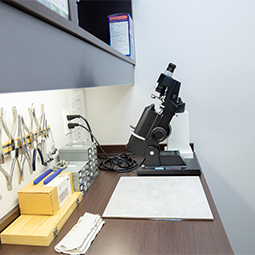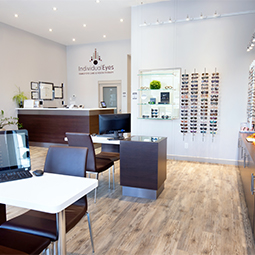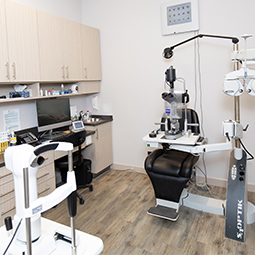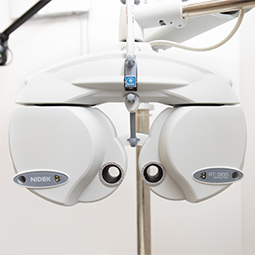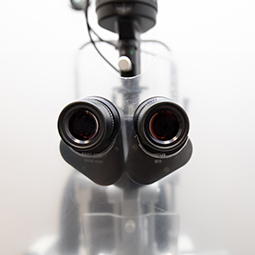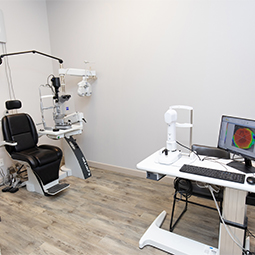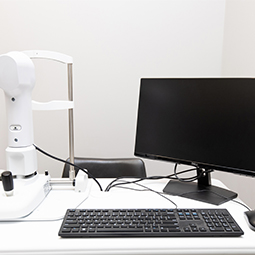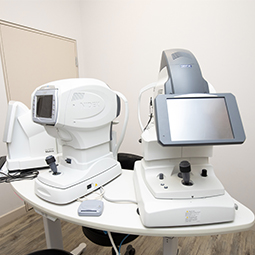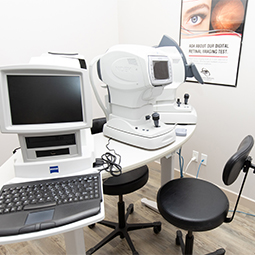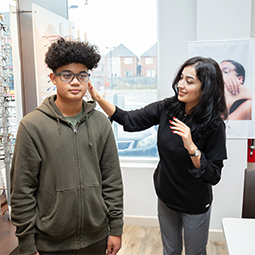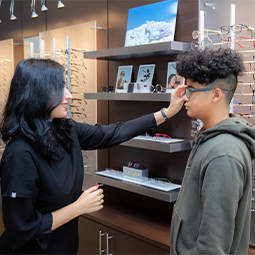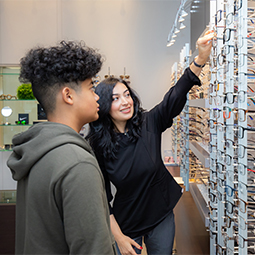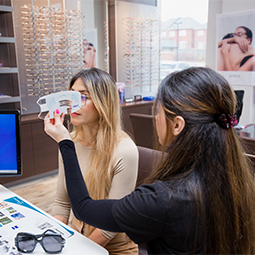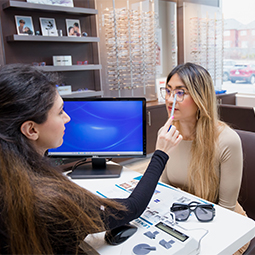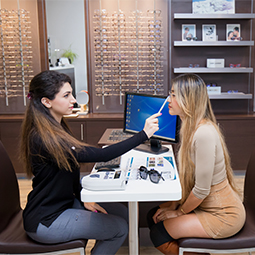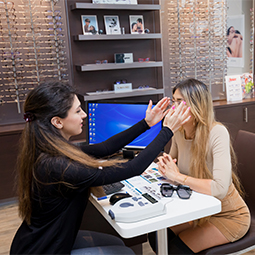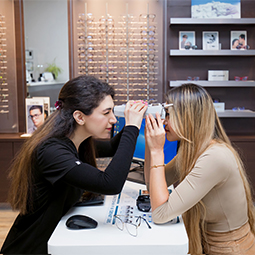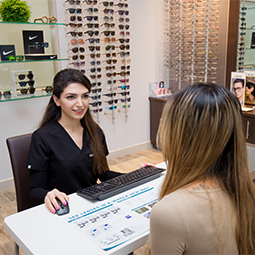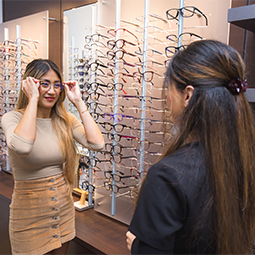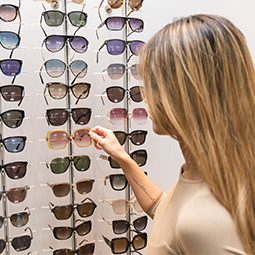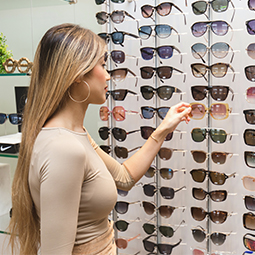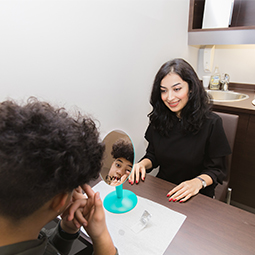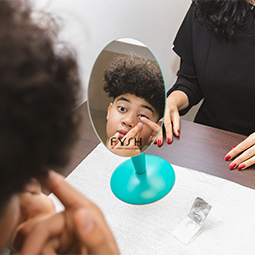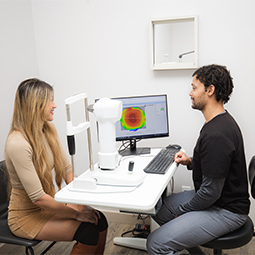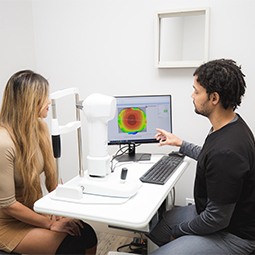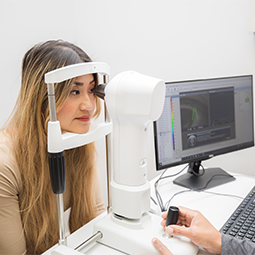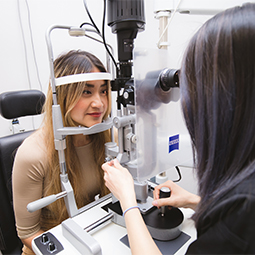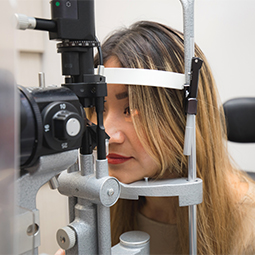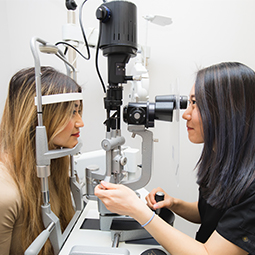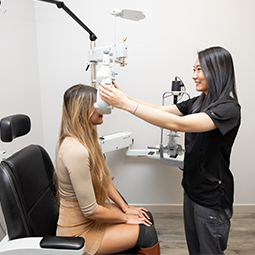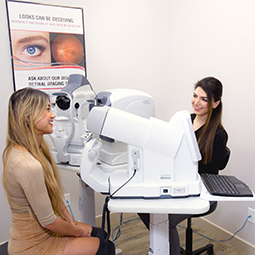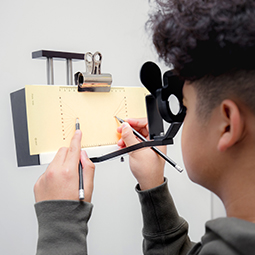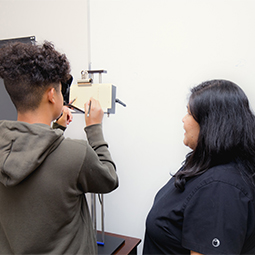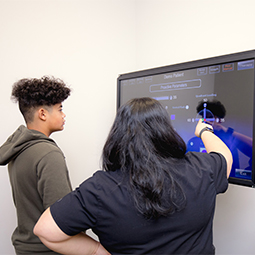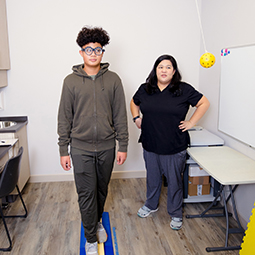Protect Your Eyes from Diabetic Complications
If you have diabetes, you’re likely no stranger to how it impacts your overall health. High blood sugar levels related to diabetes can damage the blood vessels in the retina. Since the retina plays a significant role in eyesight, diabetes can put your vision at risk.
In fact, eye disease due to diabetes is the leading cause of preventable blindness in North America in those between 30 and 69.
Annual eye exams are an important tool for detecting diabetic eye diseases early. With early intervention, eye diseases can be treated and future eye damage can be prevented. At IndividualEyes, we use advanced, noninvasive diagnostic equipment to uncover changes in your eyes that could indicate diabetic eye diseases.
Our trained and experienced team is here to support your eye health. Call us to book your diabetic eye exam.

How Diabetes Affects the Eyes
Temporary high blood sugar levels can sometimes cause blurred vision that lasts only a few days or weeks. This blurring occurs when blood sugar levels cause swelling in the eye tissues responsible for focusing your vision. When your blood levels return to normal, this blurred vision will go away.
If your blood sugar levels stay high over a long period, it can damage the delicate blood vessels in your retina. Most serious eye diabetic diseases are caused by blood vessel problems. This damage can occur even in those with prediabetes.
Diabetes increases your risk of developing cataracts and glaucoma, but even more seriously, diabetes can lead to diabetic retinopathy.
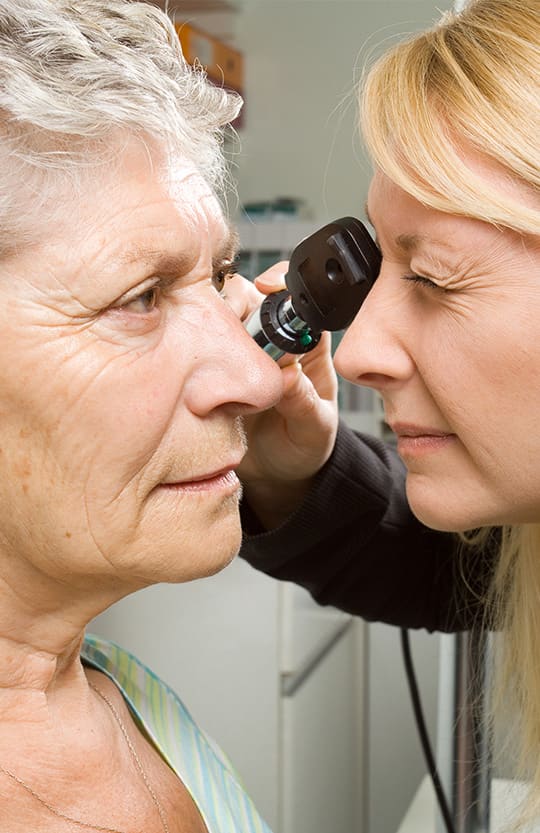
What Is Diabetic Retinopathy?
The retina is the tissue at the back of the eye that absorbs light and decodes visual images for your brain. Diabetic retinopathy damages the fragile blood vessels that supply the retina, causing them to weaken, swell, and potentially break.
Early diabetic retinopathy can develop with no symptoms or only mild vision problems. As the disease advances, damaged blood vessels close off, prompting new, abnormal blood vessels to grow on the surface of the retina. These new blood vessels can cause scarring and lead to serious vision problems.
Diabetic retinopathy affects 23% of patients with type 1 diabetes and 14% of patients with type 2 diabetes.
Diagnosing Diabetic Retinopathy
Diabetic retinopathy can be detected and diagnosed during a diabetic eye exam. These exams are designed to detect and monitor diabetic eye diseases like retinopathy. We use fundus photography and optical coherence tomography (OCT) to get a highly detailed look at your internal eye structures.
Fundus photography is a noninvasive test that takes a series of high-definition, colour images through your pupils. It takes images of internal eye structures including the retina, blood vessels, optic disc, macula, and posterior pole.
OCT is also noninvasive and uses light waves to take cross-sectional images of the distinctive layers of your retina. These images allow us to measure the thickness of your retinal layers to help with diagnosis.
Not only are these tests useful for detecting diabetic eye diseases, but they can also help us diagnose conditions like glaucoma, age-related macular degeneration, and retinal detachment.
Treating Diabetic Retinopathy
Early stages of diabetic retinopathy can be managed simply by controlling your blood sugar levels and blood pressure. Your optometrist will also want to see you regularly to monitor your disease.
If diabetic retinopathy progresses, it can be controlled with anti-VEGF injections, laser treatment, or surgery. These treatments are more effective when the disease is caught early, so regular eye exams are crucial.
Our Locations
Richmond Hill
Come by our beautiful Richmond Hill location on Tower Hill Road just down from William Neal Community Park. We’re right between Tower Hill-Bathurst Animal Hospital and Aviva Nails, and there’s lots of parking available.
- 9-372 Tower Hill Road
- Richmond Hill, ON L4E 0T8
Our Hours
- Monday: 9:00 AM – 6:00 PM
- Tuesday: 9:00 AM – 6:00 PM
- Wednesday: CLOSED
- Thursday: 9:30 AM – 6:00 PM
- Friday: 9:00 AM – 6:00 PM
- Saturday: 8:00 AM – 1:00 PM
- Sunday: CLOSED
Bolton
Come visit us at our new office relocated on the 2nd floor of the Bolton Professional Building, turning into Martha Street off Highway 50. We are right behind the Petro-Canada gas station and there’s lots of parking available.
- 30 Martha Street, Unit 203
- Bolton, ON L7E 5V1
Our Hours
- Monday: 9:00 AM – 6:00 PM
- Tuesday: 9:00 AM – 6:00 PM
- Wednesday: 9:00 AM – 6:00 PM
- Thursday: 9:30 AM – 6:00 PM
- Friday: 9:00 AM – 6:00 PM
- Saturday: CLOSED
- Sunday: CLOSED


Our Services
Our Brands





Our Google Reviews

Our Gallery

Our Blog
How to Tell If You Need an Eye Exam: 7 Signs You Shouldn’t Ignore
Eye ConditionsEye HealthProtecting Your Eyes: The Importance of Wearing Sunglasses Year-Round
Eye ConditionsEye HealthHow to Tell If You Need an Eye Exam: 7 Signs You Shouldn’t Ignore

How often do you really think about your eye health? If you’re like most people, the answer is: not often enough. We rely on our vision for everything, from reading texts to driving to recognizing faces, and yet, many of us delay routine eye exams until we’re already struggling to see clearly. That’s a problem. […]
How to Tell If You Need an Eye Exam: 7 Signs You Shouldn’t Ignore

How often do you really think about your eye health?If you’re like most people, the answer is: not often enough. We rely on our vision for everything, from reading texts to driving to recognizing faces, and yet, many of us delay routine eye exams until we’re already struggling to see clearly. That’s a problem.The truth […]
Protecting Your Eyes: The Importance of Wearing Sunglasses Year-Round

Let’s start with something simple: Sunglasses aren’t just for summer. You know that classic image, someone lounging at Wasaga Beach in July, rocking a pair of shades and soaking up the sun. Sure, that’s one reason to wear them. But what about February, when the snow’s blinding on the side streets of Bolton? Or October, […]


